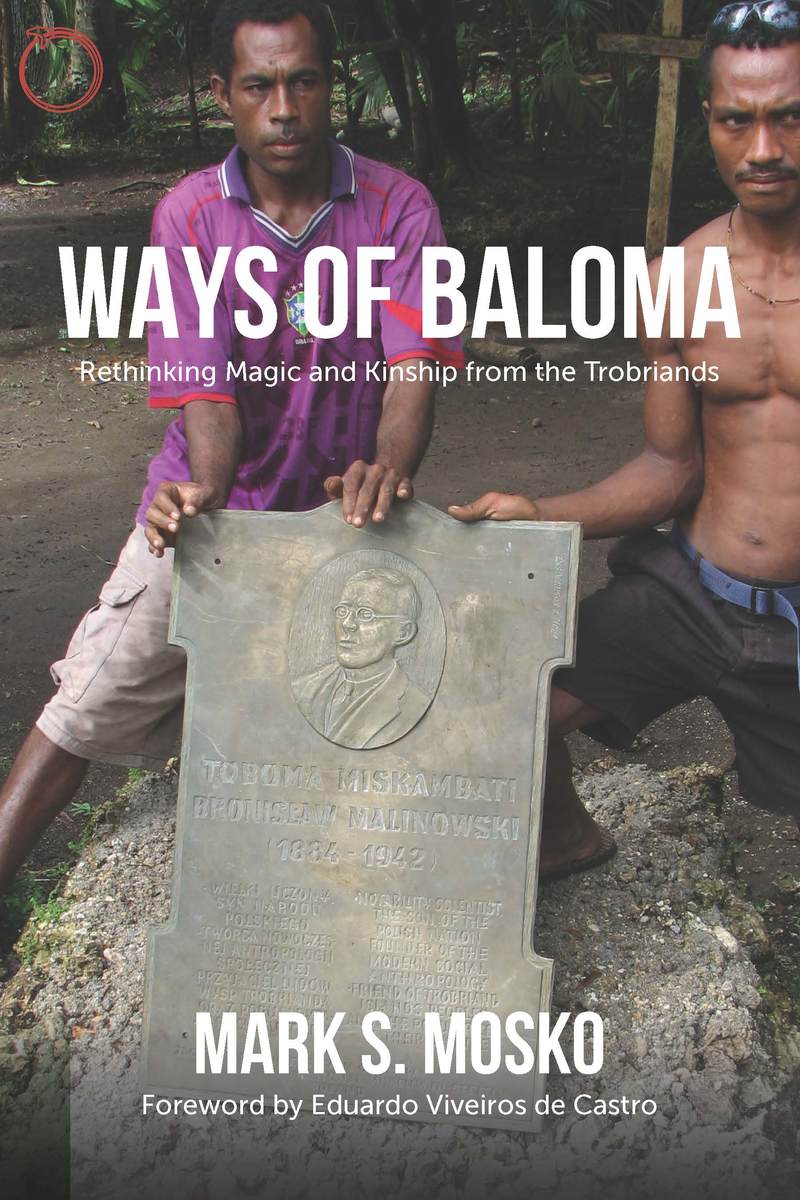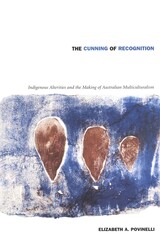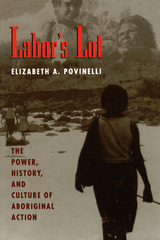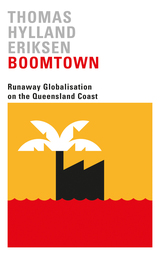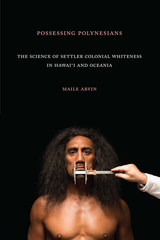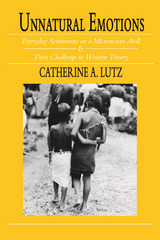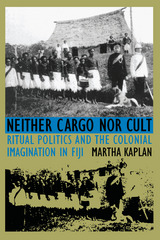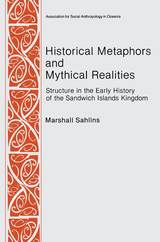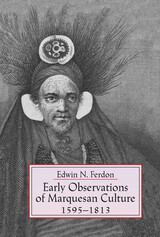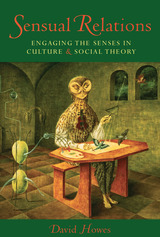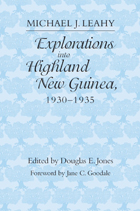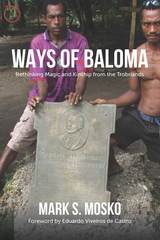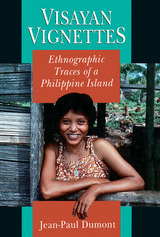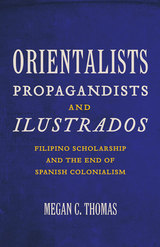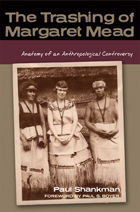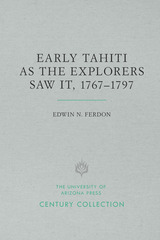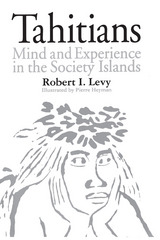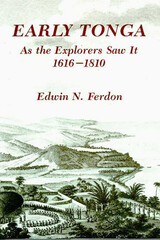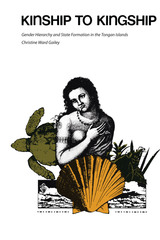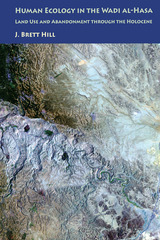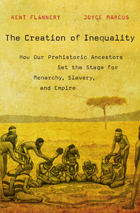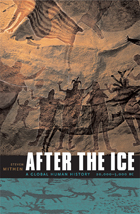"Would not the wizards of L’Année Sociologique be surprised to discover that all of their favorite conceptual glosses like sacrifice, prestation, ritual, and symbol could all be covered by Mosko’s single broad-scale analogy? Welcome to the twenty-first century, Bronislaw Malinowski."
— Roy Wagner, author of The Invention of Culture
"This erudite and timely volume radically inverts much of the anthropological canon by offering a reinterpretation of Trobriand society that yields powerful new insights into kinship, magic, procreation, knowledge, representation and life itself. It is consequently an ethnography which has implications far beyond anthropology through its bold insistence that we acknowledge more fully the inextricability of any form of analytic category from the social context in which it is embedded."
— Sarah Franklin, editor of Marilyn Strathern’s Before and After Gender
"With Ways of Baloma, Mark Mosko offers us a wide, deep and new view of the Trobriander’s ways of thinking, acting, and exchanging not only between human beings, but with their ancestral spirits, the baloma. Contrary to what Malinowski wrote about them, the baloma are involved every day in all the activities of the people. The baloma are the key to understanding what are life and death, kinship and magic, sacrifices, the body and the soul for the Trobrianders. The demonstration is superb."
— Maurice Godelier, author of The Metamorphosis of Kinship
"This unique collaboration between an anthropologist and high-ranking intellectuals presents a radically revised understanding of Trobriand ethnography. Mosko returned to the Ground Zero of 'ethnographic theory'—a term coined by Malinowski—to produce an analysis deliberately designed as a provocative and controversial intervention into contemporary debates on the nature of Melanesian personhood, and the neglected relation between magic and kinship."
— Chris Gregory, author of Gifts and Commodities
"Malinowski’s Trobriand ethnography is the most famous case study in social anthropology. Mosko has done long-term fieldwork in the islands and, on the centenary of Malinowski’s study, he has come up with a radical reinterpretation of key features of Trobriand life: magic, fatherhood, and the ancestors. Drawing on contemporary theoretical perspectives, Mosko has written the Trobriand ethnography for the twenty-first century."
— Adam Kuper, author of Anthropology and Anthropologists
“The Trobriand Islanders are one of the most thoroughly studied societies in the world. Is it possible, though, that after a century of fieldwork by some of anthropology’s most illustrious figures, including Annette Weiner and the master Bronislaw Malinowski himself, there is still much that has been misunderstood or overlooked? Mark Mosko makes a convincing case that some core aspects of Trobriand culture have eluded us and that comprehending those aspects solves major questions or mysteries in Trobriand ethnography.”
— Reading Religion
"Bronislaw Malinowski's work on the Trobriand Islands of Melanesia is still respected, though not sacrosanct, a century after he conducted it. Succeeding anthropologists amplified or challenged his analyses and investigated areas he overlooked. Annette Wiener, for example, focused on the neglected topic of gender and Trobriand women in Women of Value, Men of Renown (1976). Mosko is the most recent Trobriand ethnographer, and the most comprehensive. He investigates the role of magic in the present, animated by Malinowski's recognition that magic infused every area of Trobriand life. Nine chapters cover classic topics such as cosmology, mortuary ritual, reproduction, taboo, rank, kinship, marriage rules, and chiefly succession. Mosko generously acknowledges his Trobriand collaborators and the Trobriand work of other anthropologists. Most importantly, his research demonstrates the way that a century of anthropological theory and research, along with changing contexts and interpretive frameworks, have allowed new insights about Trobriand kinship, personhood, magico-religious beliefs, Christian conversion, and the relationship between humans and spirits. The author concludes that traditional beliefs and practices surrounding kinship and magic have remained material to Trobriand life through a century of colonial and postcolonial transformation. This important book is mandatory for all four-year and university research collections. Essential."
— Choice
"In this important volume, Mark Mosko presents a reinterpretation of some of the key tenets of Trobriand social organization, delivered as a direct challenge to much of the classic ethnographic analyses of this 'sacred place' in anthropology's canon. . . . This is undoubtedly an important addition to the corpus not only of Trobriand ethnography, but to the discipline as a whole. . . . Sure to be required reading for scholars of the Massim region and Melanesia/Oceania more broadly, as well as those interested in exchange, sacrifice, kinship, magic, and social organization."
— Pacific Affairs
"Challenges prevailing anthropological representations of Trobriand life. . . . It is a fitting culmination of [Mosko]’s anthropological corpus and a splendid example of what our hyper-productive Emeriti can do in retirement. Echoing a canonical Trobriand botanical idiom, I declare that the base has risen through the body to the tip and has borne fine fruit."
— Asia Pacific Journal of Anthropology
"Ways of Baloma is thick description articulated through one of the most sustained theoretical discussions our times allow. . . . This book is an anthropology as it was meant to be, intense scholarship and searching ethnography. For these times it is gripping in its level of interaction between the analyst and his subjects. . . . As we all know, one of the marvels of Malinowski’s work was that for decades people could make arguments with it somewhat askance to Malinowski’s own theoretical commitments. For some anthropologists, this quality became the standard to replicate: create a coherent argument with a rich body of data and then let time do the re-telling. By this standard Mosko has created a sequel to Malinowski’s ethnography. This work is rich enough to be handled somewhat differently by different yet sympathetic readers."
— Anthropological Forum
"In this impressive volume, Mark Mosko provides an in-depth critique of Malinowski’s perception and articulation of life in Northern Kiriwina, Trobriand Islands, Papua New Guinea. . . . In this ethnographically and analytically rich and complex work, Mosko shows the composite character of both persons and spirits, of shadows, images and powers, and their timeless interrelationship through kinship. A short review cannot do justice to this magnificent volume. . . . Mosko’s aim to dig meticulously into cosmogonic and cosmological foundations of conceptualcum-practical existence of Trobrianders required complex in-depth discussions with those who are guardians of such a knowledge and capable of reflection. Together, I would say, they fully succeeded."
— Anthropos
"Mark S. Mosko distinguishes himself as one of the leaders of contemporary Pacific anthropology. . . . With compelling theoretical and conceptual reflections, as well as twenty-first century ethnographic and analytical ambitions, Ways of Baloma is a remarkable work worthy of the classics. . ."
— Anthropologie et Sociétés (translated from French)
